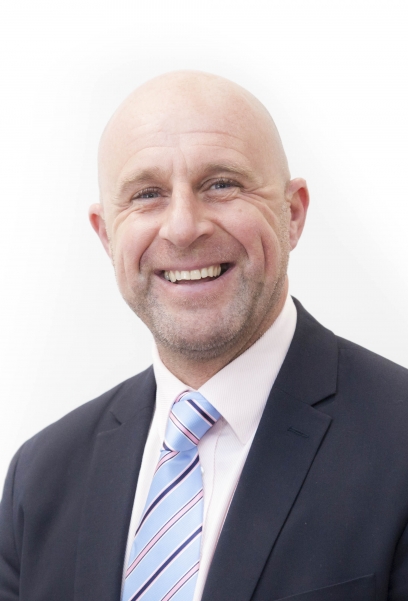5 minute read
10 Questions With – Paul McKinlay, Head of Plant at Airbus Broughton
1 – What’s one thing you have implemented in your business that you would encourage other manufacturers to embrace and implement?
For the tremendous results achieved across a range of areas including reducing recurring costs and improving employee engagement, I would have to say other manufacturers should consider launching a scheme that encourages employees to submit business ideas which are then developed and implemented. Our scheme is called Involvement Scheme and in 2017 alone, more than 250 ideas were submitted leading to savings of millions of pounds and numerous process improvements. You really can’t underestimate how powerful these schemes can be for both overall operational improvement and employee engagement.
2 – What is your morning routine once you arrive at the factory, does this depend on the day of the week it is?
Every day is different, but we do try to have a weekly standard governance process in the factory so that our teams can plan and manage their time more effectively. Monday’s and Friday’s are set aside for reviews in the factory to check on progress, and on these days I try to avoid planning other activities. If I travel to other sites or the final assembly lines for the aircraft, then this will generally be in the middle of the week. And I try to leave some time to deal with issues that arise every day, which can be of an incredibly diverse nature – anything from personnel issues, to equipment breakdown, bad weather which impacts the runway, you name it, it has probably happened in my time in charge. Even when I leave the factory in the evening, I do 2-3 hours of work at home, and I am on call 24/7 in case of issues in the factory.
3 – What’s the best piece of advice you have ever been given?
It is really important to listen to people in all sorts of different roles and don’t become too distant from the day to day goings on in the factory. Every week I make sure I spend time walking around the shop floor and listen to people, their questions and take time to explain decisions. I also drive around the site to see what is happening and keep an eye on its condition. The biggest leadership advice I would give is to “go, look and see” for yourself. And I would never ask anyone to do anything that I am not prepared to do myself. I remember at one of the first small factory units I ran, I really wanted to improve standards so I brought my lawnmower in at the weekend and cut the grass outside the reception area. I was proud of our factory unit, and wanted it to look its best.
4 – If you could choose, what would you like your legacy to be once you retire?
To be remembered as a good manager. I am really not into formalities or hierarchy and like to treat all colleagues as equals, regardless of the role they each fulfill. Perhaps the real acid test is what my friends say in the local pub – many of them work in the factory, and they are very quick to give me feedback! Whether I am a good boss is for my team to judge, but if you were to ask them I hope they would say I always give my absolute best, and that they would recognise how committed I am to them and the future of our factory.
5 – What one thing would you change to make your business more efficient and productive if money was no object?
I would build a brand new facility for the production of our Single Aisle wings. We’ve been building wings in that facility since the early 70s and although we have enhanced and developed the system, to have a brand new, purpose-built facility with the latest available technology would make a significant difference.
6 – How do you see smart technology (IoT & Industry 4.0) affecting the long-term growth of UK manufacturing?
The world is changing and within Airbus we’re embracing digital transformation across all parts of the business, manufacturing included. From the use of smart glasses in an operational environment so operators have all the data they need at the touch of a button to using industrial robots to increase speed, accuracy and quality, there is no doubt the impact of a working environment which connects users and objects will have a positive impact on the long-term growth of manufacturing. Ultimately, by being digital masters, organisations can out-perform competitors.
7 – What is your proudest career achievement so far?
In 2014 we celebrated the 75th anniversary of the plant. We held an open day for colleagues and their families, and to see over 25,000 people in the factory on that day, with so many children excited by the incredible products was a very special day. If we can inspire the future generation to be part of manufacturing and engineering, then I really feel we are making a difference and the faces and pride that day will always stay with me.
8 – If you were prime minister, what would be the first thing you would change or improve for manufacturers?
Those who know me will know the role of prime minister is not one I would seek out or accept – I am not a political creature! That said, given the current backdrop that is Brexit, I would take the opportunity to try and negotiate a Brexit outcome that makes sense for the aerospace industry and manufacturing as a whole. We need an appropriate transition period so we can effectively adapt to whatever changes are coming and we want to avoid new barriers or the flexibility of workforces constrained. I think regardless of which way people voted – remain or leave – everyone agrees that Brexit should not leave UK manufacturers at a competitive disadvantage so that would be the first thing I would focus on.
9 – How do you think the manufacturing community can collectively continue to engage and interest young people in manufacturing careers?
For me it is about preparing the future – our plant has a proud 77 year history, and I feel a strong responsibility to improve and develop it for the years and generations to come. This is not only in terms of investment and infrastructure, but more importantly the people who work there. I love to welcome the new apprentices and graduates to the factory each September, and I take great pride in these schemes, particularly as we recruited more than 100 apprentices this year. It is fantastic to see colleagues developing and growing, and one of the most important parts of my role is to coach and develop the future leaders of the plant.
10 – Any wise words, advice or tips for someone looking to pursue a career in manufacturing?
For me it is about hard work, commitment, and never becoming complacent – there is always the opportunity to improve, no matter what you do, and in business if you don’t improve, you can be sure your competitors are gaining ground on you. But the most important factor for me it to be passionate and really care about what you do, because that really makes the difference.

Paul McKinlay, Head of Plant at Airbus in Broughton / Picture: Airbus
10 Questions With… is a regular feature where we put a variety of quick fire questions to manufacturing leaders and role models to get to know the people behind manufacturing success in the UK.
If you wish to be featured on “10 Questions with…” please get in touch on hello@zenoot.com
